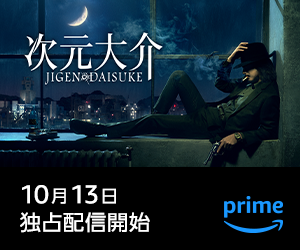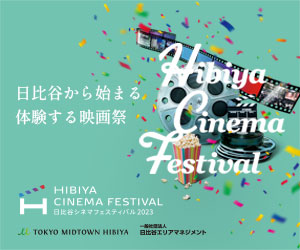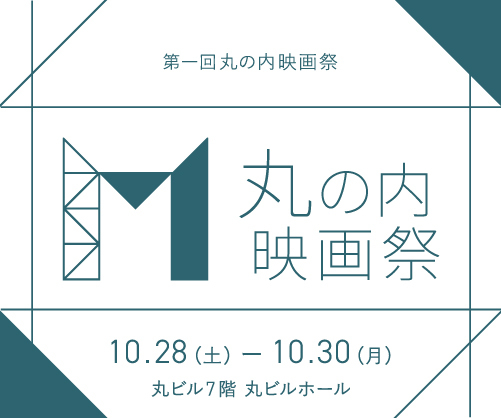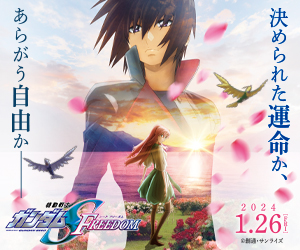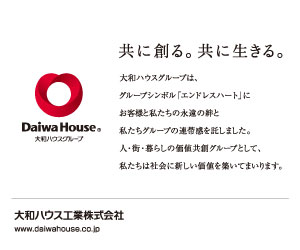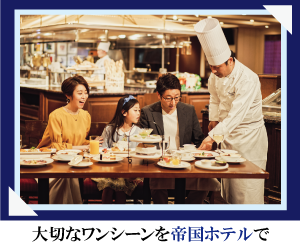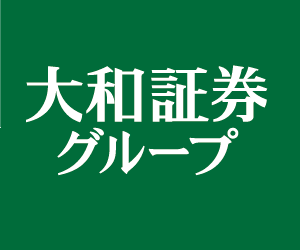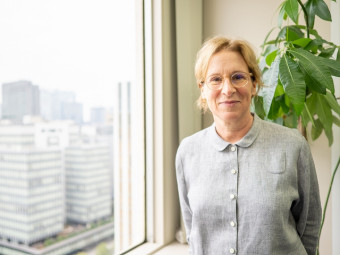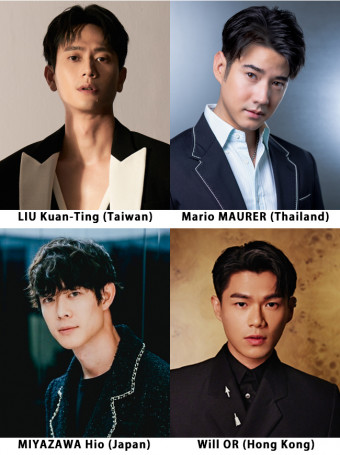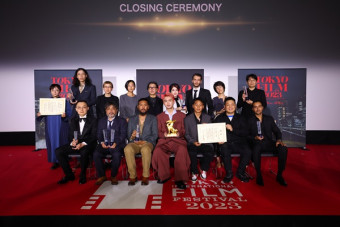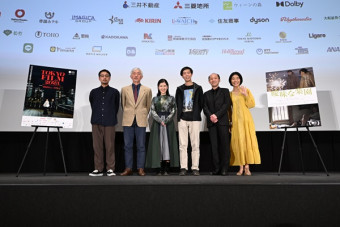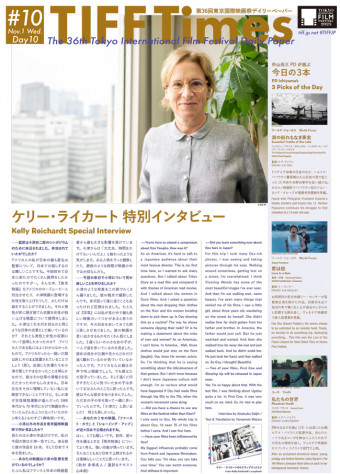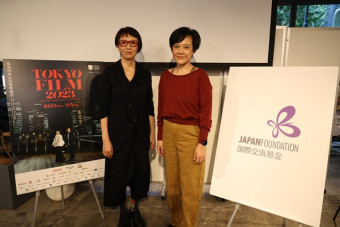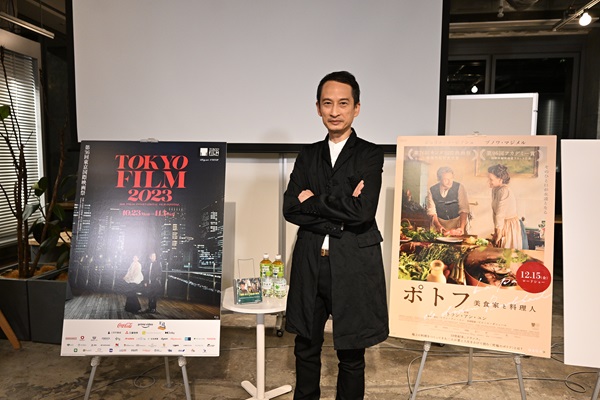
Acclaimed Vietnamese-French director Tran Anh Hung kicked off the first TIFF Lounge of the 36th Tokyo International Film Festival on October 24. Co-presented by The Japan Foundation and TIFF, and held in the chic café Yurakucho micro Food & Idea Market, his master class attracted a large crowd of rapt listeners.
Tran is back in Tokyo to present his latest film, The Pot-au-Feu (La passion de Dodin Bouffant; The Taste of Things), in TIFF’s Gala Selection. Upon its world premiere in the Cannes Film Festival in May, it earned him the coveted Best Director Award, and was subsequently submitted as France’s entry for Best International Feature Film at the 2024 Academy Awards.
Set in France in 1885, The Pot-au-Feu follows talented cook Eugénie (Juliette Binoche) and her longtime employer, restaurateur Dodin (Benoit Magimel), whose budding midlife romance leads to ever more delectable dishes, attracting diners from all corners and astounding the world’s most illustrious chefs. But Eugénie continues to resist Dodin’s offers of marriage… until he decides that he must take the bold step of cooking for her.
After Tran expressed his pleasure at being back in Japan once again, event moderator Tanaka Fumihito reminded audiences that Tran had begun his career with two films set in his childhood home of Vietnam: his debut film in 1993, The Scent of Green Papaya, which won the Caméra d’Or and Award of the Youth for Best French Film at the Cannes Film Festival; and his second film, Cyclo (1995), which won the Golden Lion at the Venice Film Festival. Tran had then begun making films in other countries, such as the 2010 Norwegian Wood, an adaptation of Murakami Haruki’s international bestseller, shot in Japan with a Japanese cast.
Why, asked Tanaka, did he return to making films in France? “Oh, it’s not me,” admitted Tran. “I always have several different projects, and it’s the producer who’s choosing which should be made first.”
Although the film’s sumptuous photography, by cinematographer Jonathan Ricquebourg, has drawn a great deal of attention overseas, the Japanese audience was piqued by the casting of French greats Juliette Binoche and Benoit Magimel, who had once been married.
Tran explained, “I’ve known Juliette for a long time. So when the project was decided, she was there from the beginning. We share the same agent, which made it easier. [Because of their shared past,] when I mentioned to her that I wanted Benoit in the film, she was a little worried at first. But then she warmed to the idea, and they were on great terms on the set.
“There’s a certain scene, when Juliette kisses Benoit, and it was something that wasn’t written in the script. But she kissed him. Benoit came running over after I’d said ‘Cut’ and asked me whether I’d told Juliette to kiss him. I assured him that I hadn’t. But it was a beautiful scene, so in the next take, I told him to act with the knowledge that she would kiss him. He also said something in the final scene that hadn’t been in the script. I asked why, since it wasn’t what I had meant, and he told me, ‘I just got lost in her eyes and I said it.’”
The film features extensive scenes in the kitchen, and Tran told the audience, “When we decided to put those cooking scenes in the films, we had to leave out all the beautiful visuals that were only superficial in their beauty. I wanted to show people working, to show their motions and gestures and the materials they’re cooking, all the different shapes. It wasn’t just about looking beautiful.
“In the beginning, we had long takes during those scenes, which is very difficult. As the characters moved, we needed to create a harmony of movement because their characters had known each other and cooked together for a long time.”
Tanaka mentioned that Tran’s passion for cooking could already be felt in The Scent of Green Papayas. “I love the kitchen,” he explained. “I have a memory of my mother cooking for me. We were working class and my mother was making clothing. It wasn’t a beautiful environment, but the kitchen seemed beautiful to me. My mom would go to the market and buy all sorts of fruit and vegetables, and we would have a fire going. I think my aesthetic sense comes from my mother’s kitchen.”
He continued, “Food is part of the cycle of life and death, present in all the milestone moments. In The Pot-au-Feu, I’m trying to awaken the five senses in the audience. The gestures, how the actors move in the kitchen, the way they deliver the dialogue conveys the aromas that are in the kitchen. The most important thing when you make a film is to convey the vibrancy of life so that the audience can feel it.”
Because TIFF is commemorating the 120th anniversary of Ozu Yaujiro’s birth with a range of special screenings and events, Tanaka asked Tran which of Ozu’s films he liked best and why. The director responded, “Late Autumn because Hara Setsuko, the protagonist, really moved me in the film. There’s a maturity in her performance and the film. It’s a simple story, and it has a special sense of humor.”
Tanaka pointed out that there’s a line in The Pot-au-Feu directly referencing the Ozu film, in which the characters talk about being in the “late autumn” of their lives. Tran nodded in agreement. “I think there are a lot of influences from Ozu in my films. I love the facial expressions and the ambiguous emotions in his work, and I tried to incorporate some of that in my own work.”
Tran was asked about the dedication to his wife and collaborator, Tran Nu Yên Khê, at the beginning of the film, and how much their relationship could be seen in their work. Said the director, “My private life is reflected in this film, as in my others. She did the art direction and the costumes as well. She listens very carefully when someone suggests that something needs to change. She can make decisions very rapidly and that’s a very valuable talent. I’ve been working with her for a long time. During shooting, she’s beside me behind the monitor, making decisions about things that need to be done, without any direction from me.”
Asked how the relationship had changed over the years of working together, Tran said, “Of course it has evolved over the years. I had a lot to learn from Yên Khê, so I was always listened to her and grew from it. A few days ago, we were Ho Chih Minh City because she was having a solo exhibition of drawings and sculpture, and I was her assistant, putting up the canvases.
In the same way, in the film, there’s the story of the Chinese poet who works on his own writing for one year, then spends the next year working for his wife. I’d like to be that way, too.” He laughed before adding, “Although I’m an unpaid assistant, even though I pay her when she works on my films.”
TIFF Lounge Co-presented by The Japan Foundation & Tokyo International Film Festival
Tran Anh Hung Masterclass
Guest Speaker:
Tran Anh Hung (Filmmaker)
Moderator: Tanaka Fumihito (TIFF Lounge)












